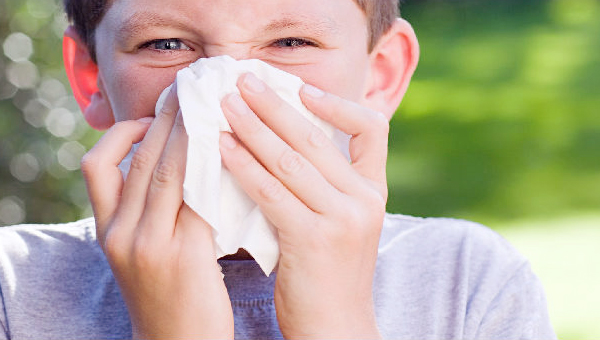Patients commonly feel difficulty breathing, heaviness in the chest which is restricting both inhalation and exhalation and is accompanied by wheezing and sometimes cough. This is due to severe bronchiospasm resulting as the body attempts to expel excessive mucous from within the bronchial passages. Personal history may include chronic allergic rhinitis or an acute lung illness, such as bronchitis. Family history most often includes Asthma, COPD and/or other lung diseases.
From a TCM standpoint, asthma, called Chuan Xiao, is seen therapeutically in a similar manner to other respiratory ailments. That is, as a result of pernicious external pathogenic processes invading the lungs and effecting the Lung, Kidney and Spleen. Contributing factors include diet, chronic respiratory infections, improper care after illness, climactic change, emotional turbulence, and overstrain or "stress," all of which leads to the retention of endogenous phlegm. Phlegm and Qi then ascend inappropriately to the throat resulting in the symptoms we call asthma. Chronic or recurrent asthma may result in simultaneous asthenia (deficiency of healthy Qi) of the Lung, Spleen and Kidney and could progress further to involve the Heart, resulting in critical conditions.

Asthma
Diagnostically, asthma can be seen to involve one of the five causative syndromes: Retention of Cold-Fluid in the lung; Retention of Phlegm-Heat in the lung; Asthenia of Spleen and Lung Qi; Asthenia of Lung and Kidney Yin; and Asthenia of Heart and Kidney Yang. These syndromes tend to represent a progression from mild to critical and may be found in transition or in multiple forms.
SYNDROME DIFFERENTIATION
1) Retention of Cold-Fluid in the Lung
This can occur after a cold, viral respiratory infection, seasonal change, or excessive cold exposure. Signs and symptoms include dyspnea which "roars," expectoration of thin, white sputum, and a light-colored tongue with white,
slippery fur. The pulse is floating and slippery in the early phases. The patient may also present with fever, Headache with diaphoresis (sweating), and an aversion to cold.
2) Retention of Phlegm-Heat in the Lung
Typical presentation includes dyspnea with limited chest excursion, yellow and sticky sputum, and slightly frothy expectoration. This will be accompanied by fever, thirst, red tongue with yellow and greasy fur as well as rapid and slippery pulse.
3) Asthenia of Spleen and Lung Qi
Common presentation includes cough, shortness of breath (lack of oxygen), aggravation on exertion, low voice and breath sounds, thin sputum, aversion to wind, spontaneous sweating, lassitude, poor appetite, loose stools,
light-colored tongue with thin, white fur and a soft and thin pulse.
4) Asthenia of Lung and Kidney Yin
This person often presents with dyspnea and shortness of breath, cough with scant expectoration, dizziness and tinnitus, aching and weakness of the loins and knees, tidal fever, night sweats, red tongue with scant fur and a thin, rapid pulse.
5) Asthenia of Heart and Kidney Yang
This patient is short of breath, has more trouble with inhalation, is averse to cold, has cold extremities, is edematous with scant urine, may be restless and experience palpitations and profuse cold sweating, is of low spirit, may have cyanotic lips, purplish tongue with ecchymoses, thin and white tongue fur, and either a deep and thin pulse or one which is slightly weak, slow and irregular in rhythm or interval.
There many approaches to treating asthma, such acupuncture, breathing exercises, meditation, cupping and herbal formulas. Accordingly to your symptoms, doctor Qiqing Li will suggest the right way of treatment or the combination of the above.
Diet, exercise and herbal therapy are important and essential adjuncts to the successful long term treatment of asthma. The elimination of fried, high fatty foods, refined sugars and alcohols is imperative. A good anti-allergy diet is also a must. Chinese Herbal Medicine should support whichever syndrome is active.

![Diseases, Symptoms, tcm, [tcmwindow.com]](/uploadFile/adImg/2015/11/11/f5cbfcc0-4df5-4646-9b9a-f316651a0199.jpg)





